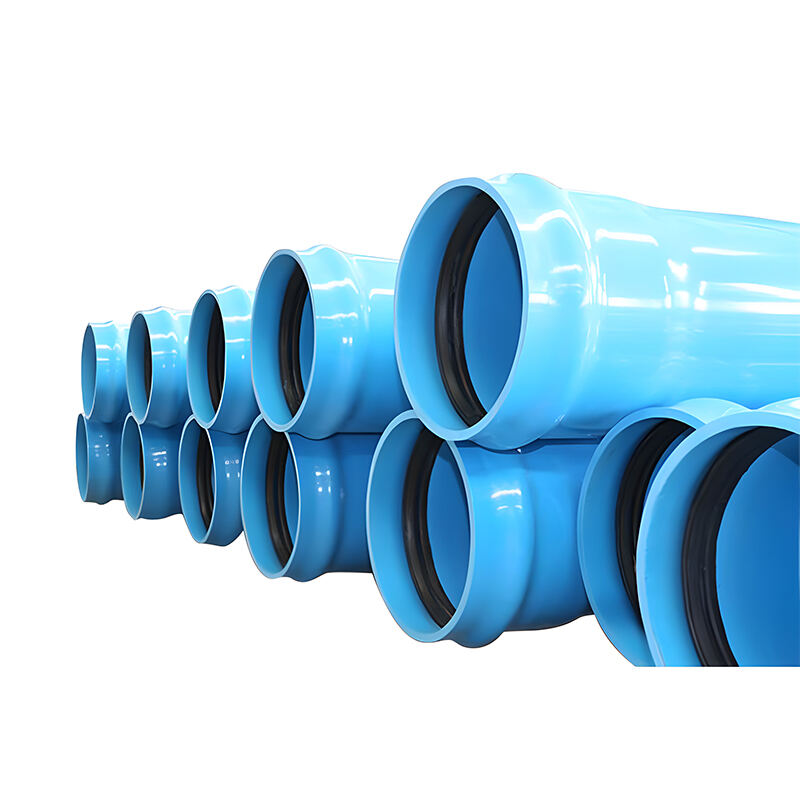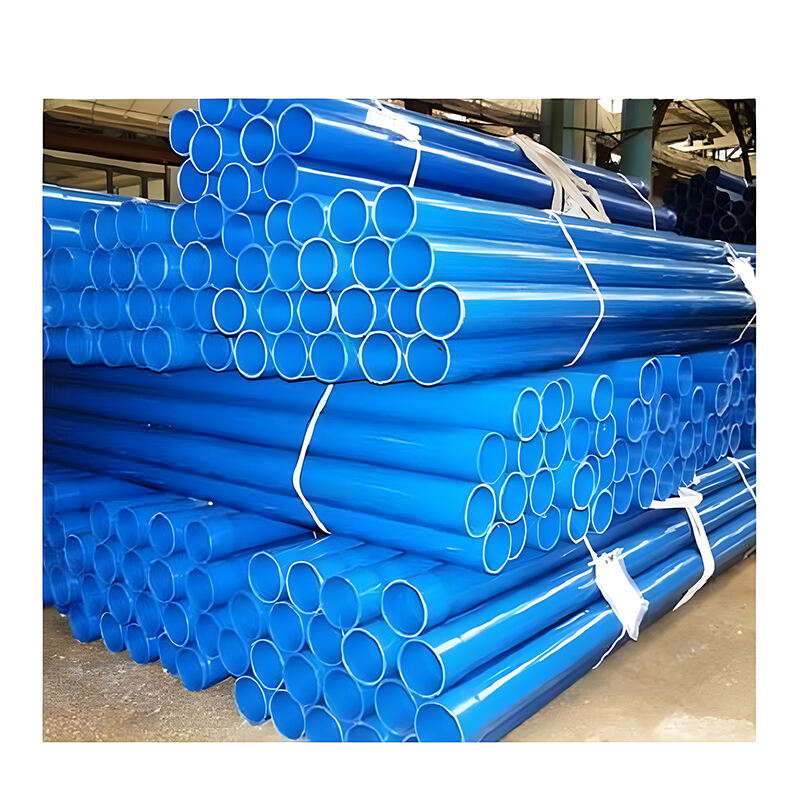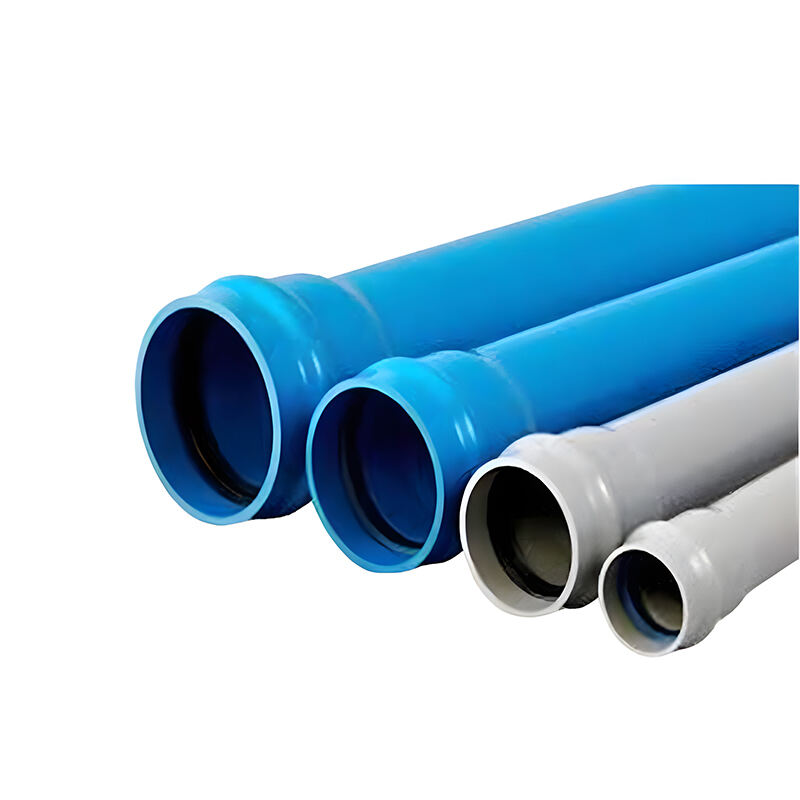Kainos efektyvumas ir lengva įdiegimo nauda
PVC vamzdžių šilumos atsparumo sąnaudų efektyvumo charakteristikos, derinamos su reikšmingais įrengimo privalumais, sukuria įtikinamus ekonominius pranašumus, kurie daro šias sistemas patraukliomis tiek naujų statybų projektams, tiek modernizavimo taikymams, kai biudžeto apsvarstymai turi būti suderinti su našumo reikalavimais. Šis sąnaudų efektyvumas prasideda medžiagos kainodaros pranašumu, kurį išlaiko PVC vamzdžių šilumos atsparumas, palyginti su metalinėmis alternatyvomis, tokiose kaip varis, nerūdijantis plienas ar specializuoti lydiniai, anksčiau tradiciškai reikalingi aukštesnėms temperatūroms. Dabartiniais PVC gamybos procesais pasiekiamos gamybos efektyvumo naudos leidžia šilumą atsparias formulacijas gaminti konkurencingomis kainomis, tuo pačiu užtikrinant šiluminį našumą, kuris atitinka arba viršija daugumos komercinių ir pramoginių aplikacijų reikalavimus. Įrengimo sąnaudų taupymas sudaro didelę dalį ekonominių pranašumų, kuriuos suteikia PVC vamzdžių šilumos atsparumo sistemos, nes PVC vamzdžių lengvas svoris ženkliai sumažina darbo jėgos poreikius vamzdžių nešimui, pozicionavimui ir tvirtinimui, palyginti su sunkesnėmis metalinėmis alternatyvomis. Standartiniais įrankiais ir tirpikliu suvirinant technologijomis galimybė lengvai pjauti, derinti ir sujungti PVC vamzdelius leidžia montavimo brigadoms dirbti efektyviau, sutrumpinant projekto trukmę ir susijusias darbo jėgos sąnaudas, kartu išlaikant aukštos kokybės sujungimus, kurie užtikrina ilgalaikį patikimumą. PVC vamzdžių šilumos atsparumo sistemų suderinamumas su standartiniais PVC jungiamaisiais ir priedais pašalina poreikį specializuotiems komponentams, kurie gali padidinti medžiagų sąnaudas ar sudėtinginti atsargų valdymą, leisdami rangovams pasinaudoti esamomis tiekimo santykiais ir atsargų sandėliavimo tvarka. Eksploatacijos sąnaudų pranašumai pasireiškia per visą PVC vamzdžių šilumos atsparumo įrenginių tarnavimo laiką, kadangi medžiagos inherentinis korozijos atsparumas pašalina poreikį apsauginiams dengimams, katodinei apsaugai ar periodiniam sugedusių sekcijų keitimui, kas yra būdinga metaliniams vamzdžiams šiluminiuose taikymuose. PVC vamzdžių lygios vidaus paviršiaus savybės išlaiko savo tekėjimo charakteristikas visą sistemos tarnavimo laiką, neleisdamos kauptis skalėms ar korozijos produktams, kurie sumažina sistemos efektyvumą ir padidina siurbimo sąnaudas metalinių vamzdžių sistemose. Energijos naudojimo efektyvumo pranašumai prisideda prie bendro PVC vamzdžių šilumos atsparumo sistemų sąnaudų efektyvumo, kadangi mažas PVC šiluminis laidumas sumažina šilumos nuostolius iš skirstymo vamzdynų, rezultatuose mažesniame energijos suvartojime ir sumažintose komunalinių paslaugų sąnaudose, palyginti su labai laidžiomis metalinėmis alternatyvomis. Tinkamai įrengtų PVC vamzdžių šilumos atsparumo sistemų ilgas tarnavimo laikas sukuria palankias gyvavimo ciklo sąnaudų palyginimo sąlygas, kadangi žemos pradinės investicijos, minimalūs techninės priežiūros reikalavimai ir pratęsti pakaitinimo intervalai lemia geresnį grąžinamumą investicijoms, palyginti su alternatyviomis medžiagomis, kurios gali pasiūlyti palyginamą šiluminį našumą, bet žymiai didesnėmis bendromis savininkystės sąnaudomis.


